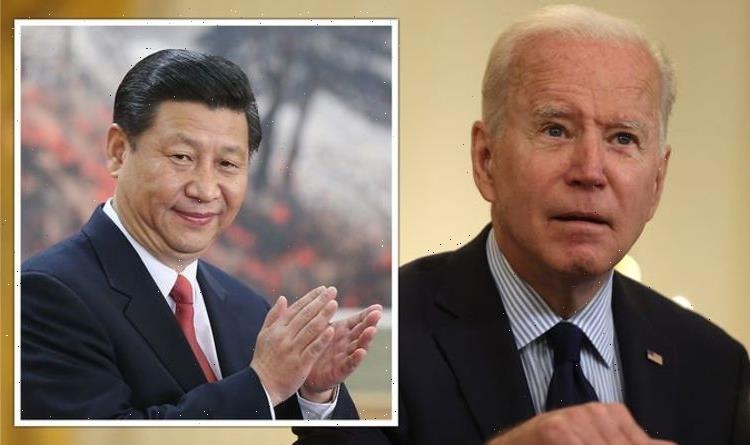Joe Biden: American voters assess US President's first 100 days
When you subscribe we will use the information you provide to send you these newsletters. Sometimes they’ll include recommendations for other related newsletters or services we offer. Our Privacy Notice explains more about how we use your data, and your rights. You can unsubscribe at any time.
NASA Administrator Bill Nelson has slammed Xi Jinping’s nation for “failing to meet responsible standards” after an out-of-control rocket plunged back to Earth during China’s mission to deliver parts to an under-construction space station. It was temporarily feared debris could hit cities including New York, Rome, and Madrid before it crashed into the Indian Ocean in the early hours of Sunday morning. The wreckage is believed to have splashed down somewhere southwest of India and Sri Lanka and caused no harm after breaking upon its re-entry into Earth’s atmosphere.
Chinese state media had played down fears that the rocket could have caused damage, saying it was “not worth panicking about,” but US Defence Secretary Lloyd Austin has called on stricter measures to make sure it does not happen again.
And Brandon Weichert, author of ‘Winning Space: How America Remains a Superpower’ previously claimed that under Mr Biden’s presidency, “US space policy will return to the same turgid place it was during the Obama years”.
During this time, while Mr Biden was Vice President, Mr Weichert claimed his “big idea” was to “have NASA conduct joint space missions with China”.
Xi Jinping’s nation has been banned from the International Space Station (ISS) since 2000 and legislation was later passed in Congress to forbid NASA and US companies from sharing technological advancements with the Chinese government after security fears were raised.
Despite this, in 2008, Mr Biden said he “wanted to make China a full partner in space exploration, rather than a frustrated new entrant that had to catch up to the US”.
A post-debate summary also referenced the fact that Mr Biden professed his support for robotic programmes, and when asked about human spaceflight, he said: “With clear leadership, we can do anything, good luck.”
After being selected as the Vice Presidential candidate for Mr Obama, Mr Biden alluded to his plans once more.
He criticised the gap between the Space Shuttle retirement and the next generation of rockets, spoke favourably regarding commercial crew proposals, and specifically focused on the job creation aspects of investing in NASA.
Mr Weichert commented in his piece for RealClearPolitics in September: “In this case, it was fortunate that Obama was largely uninterested in the space programme.
“Because of that indifference, even Biden’s harebrained scheme – which would have resulted in the greatest tech transfer in history from America to China — was avoided.”
But Biden has not signalled these intentions yet.
In April he proposed a $24.7billion (£17.6billion) NASA budget, a $1.5billion (£1.07billion) increase on what Congress allocated to the agency for the fiscal year that began in October 2020.
NASA’s then-acting Administrator Steve Jurczyk welcomed the proposals in an agency statement.
He said: ”This funding request demonstrates the Biden Administration’s commitment to NASA and its partners who have worked so hard this past year under difficult circumstances and achieved unprecedented success.”
It proposed $6.9billion (£4.94billion) for the Artemis program, NASA’s plan to land humans on the Moon.
DON’T MISS
Tehran’s war capability revealed amid tensions with West [ANALYSIS
US soldier risked ‘cataclysmic outcome’ with defection to USSR [COMMENT
Turkey close to Russia’s grasp amid Trump fury after Venezuela ruling [ANALYSIS]
Under President Donald Trump’s administration, the agency was working to return astronauts to the Moon by 2024, widely acknowledged to be an ambitious timeline.
The Biden administration has not yet announced whether it will slow the programme’s goals, or whether it does indeed plan to work with China.
But Biden took aim at China in his first speech to Congress last week.
He said: ”China and other countries are closing in fast. We have to develop and dominate the products and technologies of the future
He has repeatedly identified competition with China as the greatest foreign policy challenge the country faces.
He and his fellow Democrats as well as opposition Republicans have all moved toward a harder line on dealings with Beijing.
Source: Read Full Article





